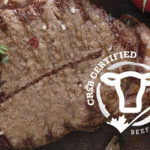
Stories by Barb Glen

A restaurant chain that stakes part of its reputation on serving Canadian beef sees opportunities for the beef industry despite the ravages COVID-19 has wreaked on the food service sector. Marcel Blais is president of Chop Steakhouse and Bar, a chain that sources 100 percent Canadian beef and was the first restaurant chain to use […] Read more
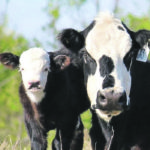
Schedules for new animal codes reassessed
Public comment periods for each of the codes may be delayed by as much as a few months in some cases due to COVID pandemic
Completed updates to various livestock codes of practice may be delayed due to the impacts of the pandemic. The National Farm Animal Care Council said it is “re-assessing timelines” for each of the codes being updated, including those for dairy cattle, livestock transport, goat and farmed salmonids. It said public comment periods, which are held […] Read moreOil and gas infrastructure seen as big threat to songbirds
Oil and gas well infrastructure has a major effect on grassland songbirds in southern Alberta, a doctoral thesis indicates. Jody Daniel-Simon recently completed a study in the Brooks, Alta., region that indicates energy industry infrastructure has a cumulative effect on songbird behaviour, likely reducing their numbers. She estimates a 70 percent decline in the number […] Read more
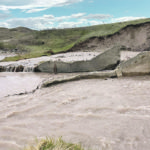
Irrigation system fails
Collapse of an irrigation structure in northern Montana last week is affecting flow in the Milk River on the Alberta side, potentially disrupting the coming irrigation season. The Milk River as it flows into Canada is dependent on a diversion of water from the St. Mary River into the Milk through a canal and siphon […] Read more
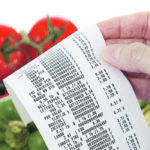
E-commerce changes retail picture; brings opportunities
Unexpected markets could open up for farmers if buying groceries online becomes the new normal for more consumers
Canada is now in week nine of the COVID-19 crisis, although it may seem as though that span has been longer — much longer. In that time, grocery shopping has become a chore to be avoided, eating at home has become the norm and the entire social contract between the food industry and consumers is […] Read more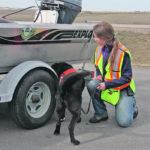
Alberta continues to inspect boats for mussels
Province remains committed to keeping zebra and quagga mussels out of its waterways, where they can cause damage
Travel restrictions now in place due to the pandemic are likely to significantly reduce interprovincial and international traffic into Alberta but boat inspection stations are still expected to be active this summer at some border crossings. The threat that zebra and quagga mussels could inadvertently be brought to provincial water bodies on watercraft remains because […] Read more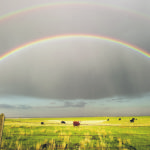
Beef processors pick up the pace
The JBS plant in Brooks Alta., adds a second shift and adopts more than 100 preventive measures to boost worker safety
The JBS beef packing plant in Brooks, Alta., returned to operating a second shift May 21, a month after reducing activity to one shift April 22. An outbreak of COVID-19 among employees reduced the workforce and many were not coming to work for fear of contracting the virus. The Cargill beef processing plant in High […] Read more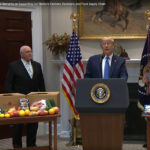
U.S. president muses about ban on foreign cattle imports
The Canadian Cattlemen’s Association is monitoring last week’s musings from U.S. President Donald Trump about terminating trade deals that allow cattle to enter that country as a way to help the American beef industry. CCA executive vice-president Dennis Laycraft said the association made quick contact with the National Cattlemen’s Beef Association in the U.S. to […] Read more
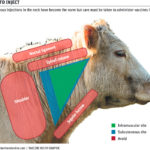
Vaccination time: what producers should know
Injections should be at least six inches apart and syringes should be marked so same vaccine is always in same syringe
Spring turnout is the typical time for cattle ranchers to vaccinate calves, and Dr. Roy Lewis offered a few reminders about that process during a recent webinar organized by Verified Beef Production Plus. Subcutaneous injections in the neck have become the norm and generally two injections are provided to calves in spring: a modified live […] Read more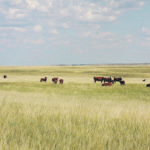
Protecting ranches saves environment: Ducks Unlimited
Ducks Unlimited Canada has sounded the alarm regarding adverse effects on conservation if the beef industry suffers an economic downturn due to COVID-19. Karla Guyn, chief executive officer of Ducks Unlimited Canada, said some of the country’s most important habitats are those managed by ranchers. If a large number go out of business, as occurred […] Read more




